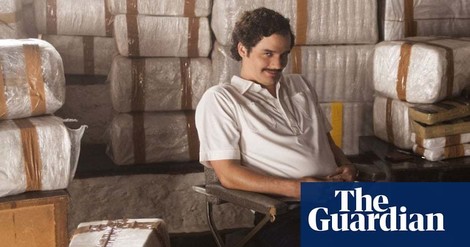Your podcast discovery platform
Curious minds select the most fascinating podcasts from around the world. Discover hand-piqd audio recommendations on your favorite topics.

piqer for: Globalization and politics Global finds Climate and Environment
Javier is a Berlin-based multimedia journalist. He completed a MA in International Journalism at City, University of London and is focused on humanitarian and conflict issues.
With experience in several countries, he's covered the refugee crisis, Turkey's coup attempt and the Kurdish conflict.
Among others, his work has been published at ABC News, Al Jazeera, Channel NewsAsia, RBB, IRIN News, El Confidencial, Público or Diario ABC.
Video: Coming To Terms With Colombia's Troubled Past In Times Of Mass Tourism
It's never easy for a society to look back at its past and feel at ease with it, especially when we talk about authoritarian regimes or violent periods of time.
Pick any country of the world and you will find the same discussion. The United States, Germany, Japan, Spain. Sometimes the only difference seems to be how recent that troubled past is.
In the case of Colombia, we are talking about a very recent past. Actually in some parts of the country, peace doesn't seem to have arrived completely. But in Medellín, 25 years after the death of the famous drug lord Pablo Escobar, the time for dealing with the city's historical memory has already begun.
And in this particular fight there are two additional, very powerful elements: mass tourism and Netflix.
How do you put an end to a dark episode of your history when the almighty North American entertainment industry is turning its protagonist into a cult figure? How do you stop the influx of people banally visiting places related to a cruel, merciless criminal?
This video feature by the Guardian explores the issue and finds different approaches are taking place.
On the one hand there's the vision of Medellín's mayor, Federico Gutiérrez, who wants to eliminate Escobar's remaining traces from the city, such as the Monaco Building, his former home.
Why? This paragraph from a New York Times report on the same story gives a clue:
Tourists now sidle up to the gate, snapping photos and posting them on Instagram. Tour guides stop by. A former cartel hit man-turned-YouTube-star appeared, offering DVDs recounting his exploits with Mr. Escobar and anecdotes from the day the building was attacked.
On the other hand, as the Guardian's Iman Amrani informs, there are also people who hated Escobar but today run some of the so-called "narcotours".
Why? To counter the narrative that is turning the drug kingpin into a pop figure and to show the world the atrocious crimes he committed.
